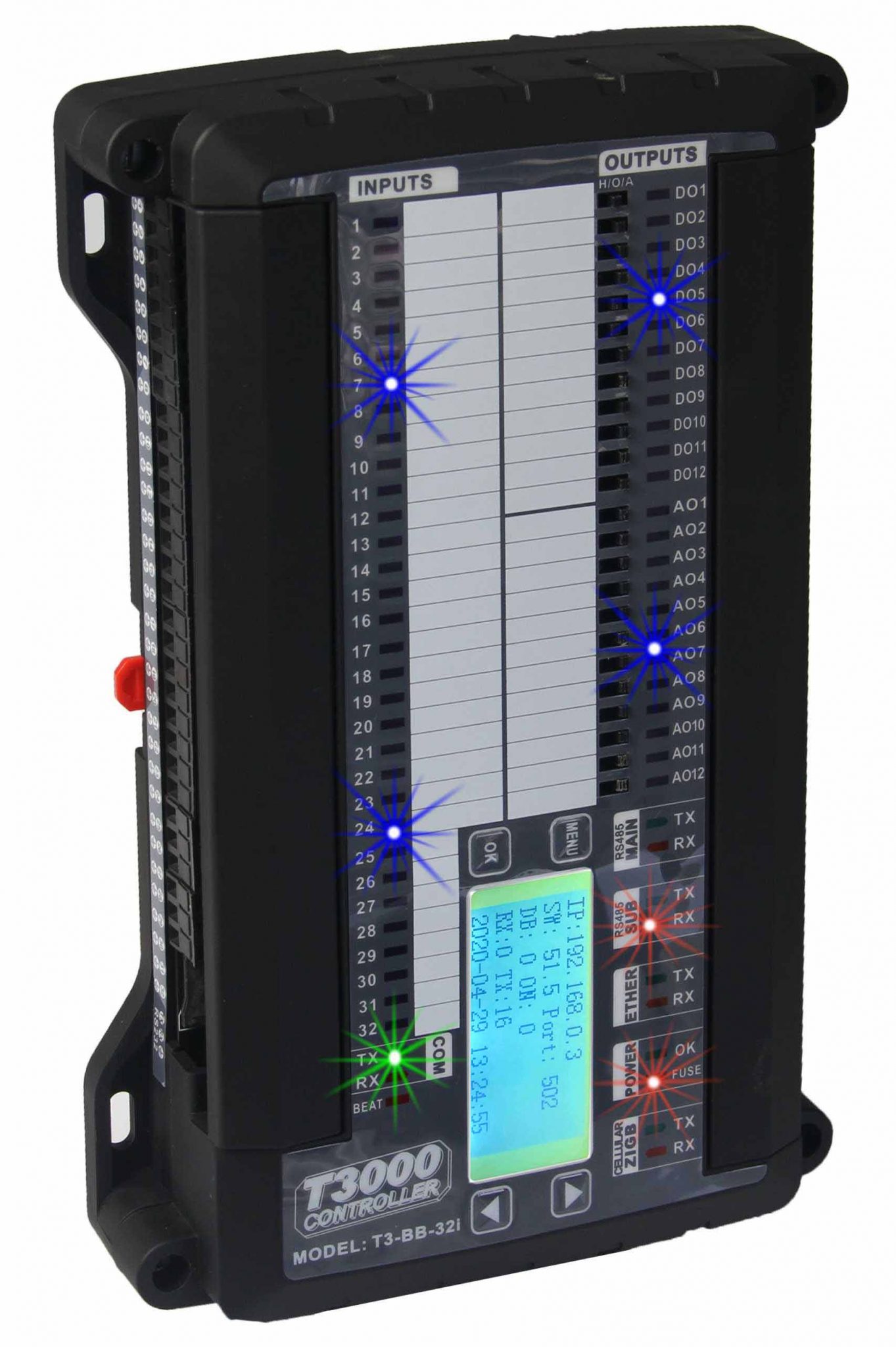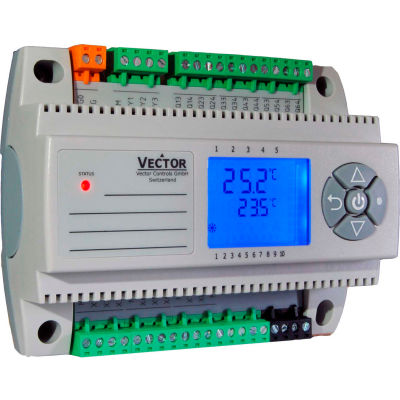Bacnet Hvac Controller
The Advantages of Bacnet HVAC Controller for Efficient Building Automation
If you are in the building management industry, then you know how maintaining a high level of comfort and energy-efficiency is essential in providing optimal performance for the building occupants while reducing operational expenses. With BACnet HVAC Controller, you can improve the automation of critical building systems to help you meet these objectives.
Bacnet HVAC Controller comes in handy because it allows building automation technologies to exchange data seamlessly, leading to smart control of HVAC systems. This technology is beneficial because, once in place, facility managers can optimize the building's energy usage, lower costs, and improve building occupants' comfort.
Bacnet HVAC Controller: What Is It?
BACnet HVAC Controller (Building Automation Control Network) is an open source, secure, and reliable communication protocol used to control and monitor various aspects of building automation systems. It is a network protocol that provides a standard interface for building automation devices to exchange data regardless of their manufacturer.
Bacnet HVAC Controller: How It Works
Bacnet HVAC Controller works by creating a foundation for all automation devices to communicate and share their information effectively. This standardization system ensures that all the devices, whether sensors, controllers, or actuators, have a common language. This allows data to be shared, commands to be executed, and statuses to be monitored regardless of the devices' vendor or functionalities.
By using Bacnet HVAC Controller in building automation systems, facility managers can get insights into all HVAC function activities and ensure these systems are operating efficiently. They can also use the information obtained to optimize comfort and safety systems for the building occupants.
Advantages of Bacnet HVAC Controller for Building Automation
Using Bacnet HVAC Controller for building automation comes with several advantages, including:
- Standardization and interoperability of all devices
- Real-time monitoring and control of HVAC systems
- Reduced energy costs
- Optimized building occupant comfort and safety
- Improved building system uptime and reliability
Interoperability and Standardization
The Bacnet HVAC Controller's main objective is to establish a standard communication protocol that enables interoperability and seamless performance of disparate systems in building automation. Interoperability ensures that all the HVAC function systems in a building communicate as one, making it possible to set customized settings for each building's zone without conflicting with the others. Standardization also enables integration with other protocols such as IP, LonTalk, and Modbus, providing even more performance and flexibility options.
Reduced energy costs
The system enables facility managers to manage their HVAC systems according to demand, thus minimizing unnecessary usage that leads to high energy bills. The energy consumption of each operational unit is monitored, providing insights for preventive maintenance, which further minimizes energy consumption.
Bacnet HVAC Controller: How It Is Used
Bacnet HVAC Controller is a significant tool in building automation; with it, facility managers can gain more control over their building's heating, ventilation, and cooling systems. It also provides accurate data and insights that facility managers can use to make informed decisions about their building's overall performance. Additionally, it can be used in monitoring and controlling other building systems such as lighting, security, and access control.
Improving HVAC System Performance
Using Bacnet HVAC Controller, facility managers can control variable frequency drives, which regulate the power consumption of HVAC units, thus optimizing their operation. Operators can also monitor and optimize HVAC function activities, reducing wasteful energy consumption, and improving system performance.
Bacnet HVAC Controller: Frequently Asked Questions
Question 1: What is BACnet?
ANS: BACnet is an open-source communication protocol for building automation and control systems.
Question 2: Is BACnet system interoperable with other protocols?
ANS: Yes, Bacnet can communicate with several other protocols, including IP, LonTalk, and Modbus.
Question 3: What is the main benefit of Bacnet HVAC Controller in building automation?
ANS: Bacnet HVAC Controller offers interoperability of all building automation devices and standardization of communication.
Question 4: What are the specific HVAC systems that BACnet HVAC Controller can control?
ANS: Bacnet HVAC Controller integrates with several HVAC systems, including variable frequency drives, air handling units, and VAV boxes.
Conclusion of Bacnet HVAC Controller
Bacnet HVAC Controller is an essential part of building automation, as it provides facility managers with a proper way to manage HVAC systems efficiently. It guarantees building occupants' comfort and safety, and as well as helps reduce operational costs, bring about notable energy savings, minimize equipment downtime, and increase system reliability. Building owners and facility managers must adopt Bacnet HVAC Controller to protect their investments and ensure the best possible performance of building automation systems.
Gallery
Bacnet Programmable Controller - Bravo Controls

Photo Credit by: bing.com / bacnet programmable controls controllers modbus bravocontrols
Vector Controls Universal HVAC Controller TCX2-40863-OP-BAC Integrated

Photo Credit by: bing.com / hvac bacnet terminal controllers globalindustrial bac modbus
OptiFlex™ BACnet Building Controller OF1628 - Sylinx Limited
Photo Credit by: bing.com / bacnet optiflex controllers
Honeywell PUB4024S Spyder BACnet Unitary Controller VAV HVAC 20-30vac

Photo Credit by: bing.com / spyder honeywell bacnet unitary controller vav
Cylon Controls Announces The Release Of New BACnet® IP-Based Building
Photo Credit by: bing.com / cylon bacnet ip hvac
0 Response to "Bacnet Hvac Controller"
Post a Comment